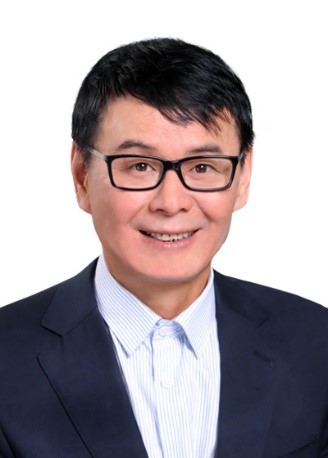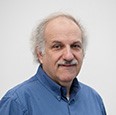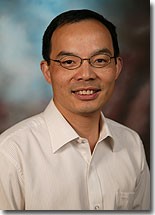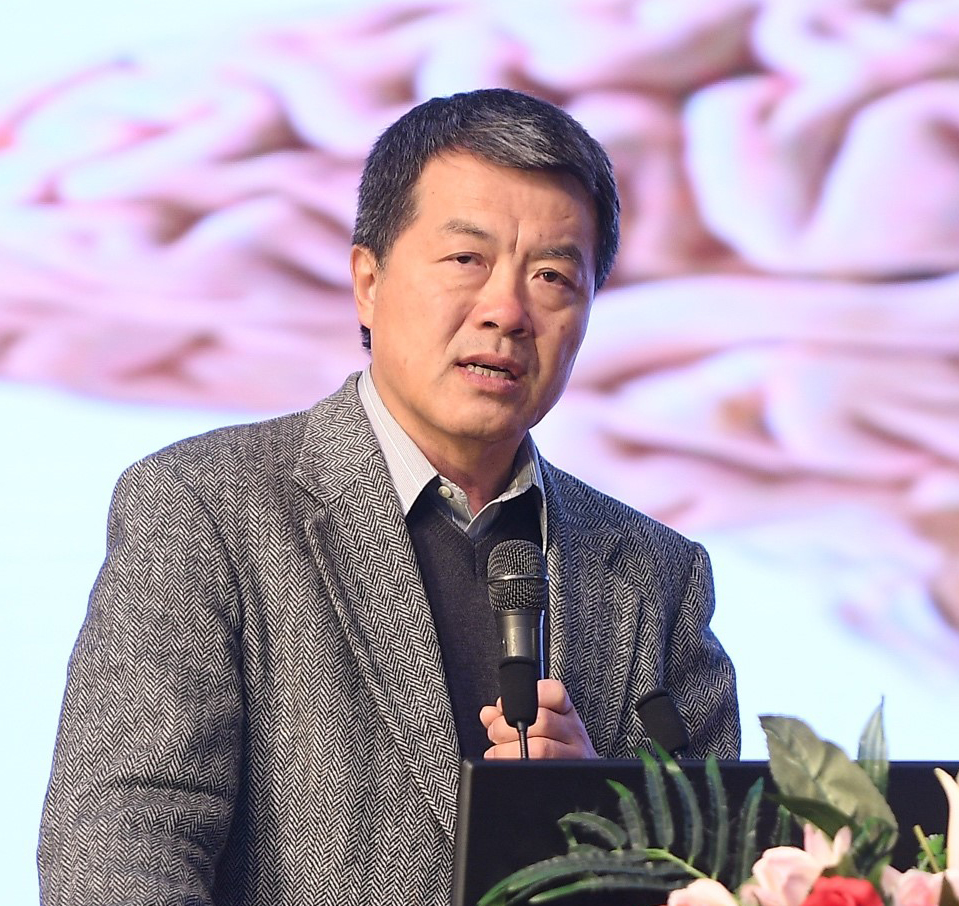CCL 2018主旨报告
主旨报告1

报告人:戴琼海(中国工程院院士、清华大学教授)
时间:2018年10月20日上午09:30-10:30
地点:长沙理工大学(云塘校区)大会堂
题目:脑科学与人工智能
摘要:本报告围绕脑科学与人工智能: 1. 回顾了脑科学的发现对人工智能进步的贡献,人工智能突破性进展、尤其是深度卷积神经网络和贝叶斯网络在多个研究领域获得重大应用,表明人工智能已经进入了全新发展时代;2. 介绍以探索人类大脑工作机制以及绘制脑功能活动全图为目标的欧美日脑科学计划。进一步介绍奥巴马“脑计划”中的阿波罗计划的研究任务:大脑皮层网络的机器智能(MICrONS),其如何通过反向设计一立方毫米的大脑,将大脑激发的智能计算向前推进。3. 针对大规模神经网络观测记录的挑战,分析国际上开展宽视场高分辨率脑成像系统的进展。介绍了研制的宽视场计算摄像仪器的进展。鉴于大脑皮层神经元组织结构对深度卷积神经网络的启示意义,探讨介观尺度皮层网络功能结构的观测,开展颠覆性实验,揭示脑神经的视觉环路、情绪环路和思维环路,从脑科学的机理探究人工智能新途径。
个人简介:中国工程院院士,清华大学教授。主要学术方向为立体视觉和计算摄像学。长期致力于该研究领域的理论和关键技术创新,主持承担了国家科技部重大基础研究973项目和国家自然科学基金委重大仪器项目,在立体视觉和计算成像方面做出贡献,分别在2016年获国家科技进步二等奖、2012年获国家技术发明一等奖和2008年获国家技术发明二等奖。2005年获得国家自然科学基金委杰出青年基金,2009年受聘教育部“长江学者奖励计划”特聘教授,2017获得全国创新争先奖。
主旨报告2

报告人:Kenneth Ward Church (Baidu Research Fellow)
时间:2018年10月20日上午10:30-11:30
地点:长沙理工大学(云塘校区)大会堂
题目:Minsky, Chomsky & Deep Nets
摘要:When Minsky and Chomsky were at Harvard in the 1950s, they started out their careers questioning a number of machine learning methods that have since regained popularity. Their objections are remembered as too negative: ngrams can't do this and nets can't do that. But more constructively, their arguments led to what is now known as the Chomsky Hierarchy and time and space complexity. The deep nets literature needs a high-level organization like the Chomsky Hierarchy. There are so many results being published these days that it is hard to see the big picture.My colleagues at Baidu have proposed a metric for ranking deep net problems by a metric of difficulty. There is no data like more data, but more data helps more for some problems than others. Their ranking suggests that more data is particularly helpful for problems that people are really excited about in speech and vision, and less so for problems in computational linguistics.
简历:Kenneth Church has worked on many topics in computational linguistics including: web search, language modeling, text analysis, spelling correction, word-sense disambiguation, terminology, translation, lexicography, compression, speech (recognition, synthesis & diarization), OCR, as well as applications that go well beyond computational linguistics such as revenue assurance and virtual integration (using screen scraping and web crawling to integrate systems that traditionally don't talk together as well as they could such as billing and customer care). He enjoys working with large corpora such as the Associated Press newswire (1 million words per week) and even larger datasets such as telephone call detail (1-10 billion records per month) and web logs. He earned his undergraduate and graduate degrees from MIT, and has worked at AT&T, Microsoft, Hopkins, IBM and Baidu. He was the president of ACL in 2012, and SIGDAT (the group that organizes EMNLP) from 1993 until 2011. He became an AT&T Fellow in 2001 and ACL Fellow in 2015.
主旨报告3

报告人:黄学东(微软云和人工智能全球资深技术院士)
时间:2018年10月21日上午08:30-09:30
地点:长沙理工大学(云塘校区)大会堂
题目:语音和语言的进化
摘要:在人类进化的长河中,语音和语言对人类智能自然选择起了独一无二的作用。可以毫不夸张的说是语音和语言推动了有别于动物的人类智能。在人工智能进化的短暂历史中,深度学习、大数据和大计算是实现我们人工智能远景的重要基础。语音和语言之进化对人工智能的重要意义毫不亚于语音和语言对人类进化的决定性作用。我会简单介绍我们在神经网络会话语音识别、 神经网络语音合成和神经网络机器翻译是怎样取得了可以媲美人类水平的重大突破。虽然在感知智能方便取得了这些突破,我们在认知领域的进展还非常有限。自然语言理解关系到知识的传承和人工智能的最核心认知智能问题。认知智能的进步对人工智能和人类智能起着决定性的作用。这一重大挑战还需要我们几代人不懈的努力才能真正实现我们的远景。
简历:Dr. Xuedong Huang is a Microsoft Technical Fellow in Microsoft Cloud and AI. He leads Microsoft's Speech and Language Group. As Microsoft's Chief Speech Scientist, he led the team achieving a historical conversational speech recognition human parity milestone (Switchboard) in 2016 and another historical machine translation human parity milestone (WMT-2017) in 2018. In 1993, Huang joined Microsoft to found the company's speech technology group. As the general manager of Microsoft's spoken language efforts for over a decade, he helped to bring speech recognition to the mass market by introducing SAPI to Windows in 1995 and Speech Server to the enterprise call center in 2004. Before Microsoft, he was on the faculty at Carnegie Mellon University. He received Alan Newell research excellence leadership medal in 1992 and IEEE Best Paper Award in 1993. He is an IEEE & ACM fellow. He was named as the Asian American Engineer of the Year (2011), Wired Magazine's 25 Geniuses Who Are Creating the Future of Business (2016), and AI World's Top 10 (2017). He holds over 100 patents and published over 100 papers & 2 books.
主旨报告4

报告人:Kevin Knight(滴滴出行自然语言处理首席科学家)
时间:2018年10月21日上午09:30-10:30
地点:长沙理工大学(云塘校区)大会堂
题目:The Moment When the Future Fell Asleep
摘要:Recently, recurrent neural networks (RNNs) have been revolutionizing natural language processing and other fields. Among other things, RNNs can assign probabilities to sequences (such as English sentences) and transform one sequence into another (such as English into French). I will describe some of our work over the past couple of years, addressing four questions: What are neural sequence models learning? How can they learn better? Are there theoretical limits? Can they be creative?
简介:Kevin Knight is Chief Scientist for Natural Language Processing (NLP) at DiDi Chuxing. He leads a DiDi lab in Los Angeles devoted to NLP research. He was previously Dean's Professor of Computer Science at the University of Southern California (USC) and a Research Director and Fellow at USC's Information Sciences Institute (ISI). He received a PhD in computer science from Carnegie Mellon University and a bachelor's degree from Harvard University. Dr. Knight's research interests include human-machine communication, machine translation, language generation, automata theory, and decipherment. He has co-authored over 150 research papers on natural language processing, including one outstanding paper award at NAACL 2018 and one best demonstration award at ACL 2018. Dr. Knight also co-authored the widely-adopted textbook "Artificial Intelligence" (McGraw-Hill). In 2001, he co-founded Language Weaver, Inc., a machine translation company acquired by SDL plc in 2010. Dr. Knight was a key researcher in programs run by the Defense Advanced Research Projects Agency (DARPA). He served as President of the Association for Computational Linguistics (ACL) in 2011, as General Chair for the Annual Conference of the ACL in 2005, and as General Chair for the North American ACL conference in 2016. He is a Fellow of the ACL, a Fellow of ISI, and a Fellow of the Association for the Advancement of Artificial Intelligence (AAAI).
主旨报告5

报告人:王小勤(清华大学脑与智能实验室主任)
时间:2018年10月21日下午14:00-15:00
地点:长沙理工大学(云塘校区)大会堂
题目:大脑处理语音及音乐信号的机制
摘要:人类的语言处理系统起始于听觉系统,大脑通过听觉系统来感知自然界多姿多彩的声学环境。在我们日常听见的众多声音中,语音和音乐是我们人类相互交流最为重要的两类声学信号。在过去几十年中,神经科学的研究对于大脑如何处理语音和音乐有了较为深刻的理解,这些研究结果对于计算机语言处理具有重大的意义。语音和音乐信号有着复杂的时域和频域特征,听觉系统通过一系列的非线性转换提取语音和音乐中的信息及特征,大脑基于这些特征形成语言的理解、情感认知等高级功能并进一步产生记忆。在这个过程中,大脑的学习和记忆功能至关重要。我在这个报告中将和大家分享大脑处理语言和音乐的最新进展。
简介:清华大学脑与智能实验室主任、国家“千人计划”入选者、教育部“长江学者”特聘教授。研究方向包括听觉大脑皮层处理语音信号和音乐信号的机制,听觉系统在复杂声场中提取信号的原理,灵长类大脑控制发声和听觉反馈的机理,以及注意力和行为对听觉大脑皮层的调制。因对“听觉神经生物学做出的杰出贡献以及开创了在语音通讯生理机制研究中的实验和计算方法”于1999 年获“美国总统青年科学家奖”。多次应邀在包括英国皇家学会和美国国家科学院所组织的专题报告会在内的重大国际会议上做学术报告并在 Science, Nature 等国际一流杂志上多次发表文章。曾担任美国国家卫生研究院 (NIH), 美国国家科学基金会 (NSF) 等若干机构的科研基金评审委员并担任 Science, Nature, Nature Neuroscience, Journal of Neuroscience, Journal of Neurophysiology, Cerebral Cortex, Journal of Computational Neuroscience, Hearing Research, IEEE, Journal of Acoustical Society of America 等多种重要期刊的审稿人。